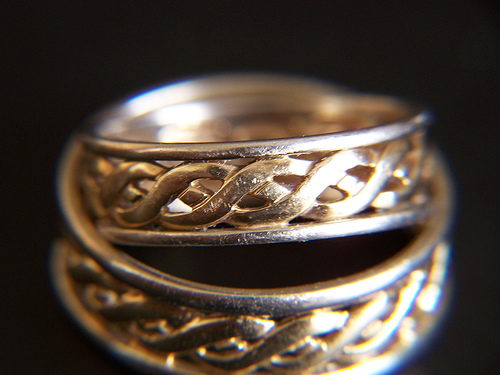
Free images from FreeDigitalPhotos.net
When Jason came out to me about being an atheist, I assumed that there would be a litany of shared interests that would be missing due to his lack of faith. Some are what you would expect, like attending church together regularly or having a singular vision for our children’s spiritual education. To be sure, there are times when I absolutely miss these moments.
But I have also discovered that because of his deconversion, there are other things that have gone missing, many that I didn’t expect.
- My assumptions about what atheists think about Christians. Obviously I don’t know all of the atheists in the world, but my interactions with the bulk of the atheists that I’ve met online and those I’ve met in person through Jason have pretty much shattered how I assumed that group felt about Christians. I thought that atheists believed that all Christians were stupid; most simply feel that Christians are wrong. I thought that atheists hated Christians; most don’t have any problem with Christians. I thought that atheists were angry; most are considerably more laid back than some of my evangelical friends. Over and over I’ve found that my assumptions keep being proved wrong and are slowly disappearing.
- My assumptions about how Christians would treat us. When Jason came out to me, I asked him not to talk about it because I was afraid of how the Christians in our lives would react. I knew that people were going to treat us (and more to the point, me) differently. What I found, however, was that when we finally told people, most embraced us with even more love. I almost never felt like someone’s project, and I’m certain that at least a few times when I did feel that way, it was more perception than reality. I know that plenty do not have such a positive experience, but I do believe that we need to be more generous with our assumptions about people in general.
- My assumptions about hell. Before I was close to someone who had no beliefs about an afterlife, I never really gave it much thought outside of “believers go to heaven, unbelievers go to hell.” In the past two and a half years, I have read considerably more about hell than I did in the previous 30-something years. I still haven’t completely settled on what I believe about the afterlife, but I no longer accept that things are as black and white as I’ve always been taught. I’m far more hopeful now, not just for me, but for everyone that I meet. Which leads me to the next thing that is missing…
- My assumptions about life now. Because my beliefs about the afterlife are in flux, this has affected how I view the here and now. When I was sure about who was in and who was out, my primary goal was simply to make sure that everyone ended up in the same place. Now that I’m less convinced of this, I am far more interested in knowing everyone’s story. When I can demonstrate that I care about the thoughts of someone I previously saw as being on “the outside” without an agenda, we are able to have a more honest dialogue.
Letting go of assumptions can be difficult. They can feel as comfortable as many of the more positive areas of our relationships and when there’s already a lot of upheaval, our instinct can be to cling to that which is familiar. But I’ve found as I loosened my grip on my assumptions, I haven’t really missed them as they’ve slipped away.
++++++++++
If you’ve had a relationship change, what kind of assumptions did you notice no longer applied? Even without a change, what assumptions do you need to release today?


